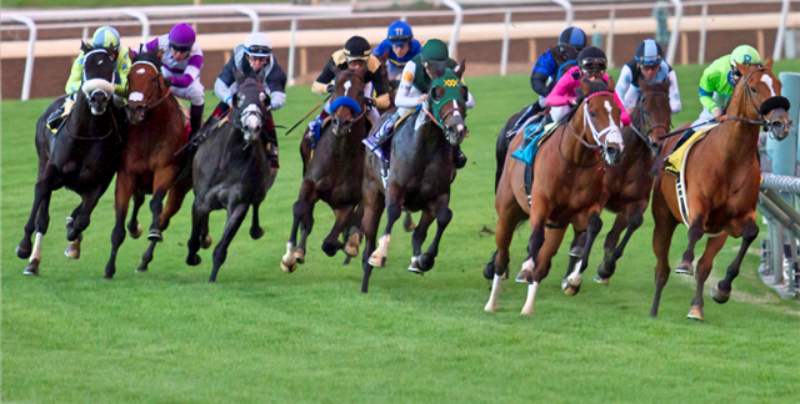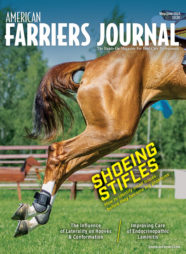The United States House of Representatives on Tuesday, Sept. 29, 2020, approved the Horseracing Integrity and Safety Act by voice vote with no opposition.
The Horseracing Integrity and Safety Act (HISA) or H.R. 1754 aims to prevent horse racing fatalities by creating the Horseracing Integrity and Safety Authority (HISA), which would be a private and independent organization responsible for implementing anti-doping and racetrack safety protocols. The U.S. Anti-Doping Agency (USADA) would enforce the drug control program. HISA would establish anti-doping regulations, penalties for violations and racetrack safety rules.
“After nearly 6 years working to advance this bipartisan legislation to modernize horseracing in the United States, we are at long last rounding the final turn,” says Rep. Paul Tonko, a New York Democrat who introduced the bill with Kentucky Republican Rep. Andy Barr. “Our Horseracing Integrity and Safety Act puts the health and well-being of our equine athletes and jockeys firmly at the center of the sport, and delivers commonsense medication and track safety standards that will lift this noble sport to higher standards of integrity and safety. These long overdue reforms will help restore public trust in the sport and put it on a path to a long and vital future, supporting countless jobs and driving economic activity in communities across our nation.”
The bill goes to the Senate where Majority Leader Mitch McConnell, a Kentucky Republican, has introduced identical legislation.
“Our bipartisan legislation to recognize a national standard for Thoroughbred racing is receiving support from all corners,” he says. “Now, it’s earned the approval of the House. Today’s vote was another important step toward protecting our beloved sport for the horses, jockeys, trainers, breeders, and fans.”
The legislation is a response from federal lawmakers after a series of doping scandals and equine racetrack fatalities. It would federally recognize the independent Horseracing Integrity and Safety Authority as an enforcement entity that establishes uniform standards for medication, track safety and testing for performance-enhancing drugs.
The Humane Society of the United States has been a proponent of the legislation from the outset.
“This legislation tackles some of the key reasons behind the growing numbers of racehorse deaths in recent years, including the rampant doping of these animals with performance-enhancing drugs and painkillers that mask pain in order to allow injured horses to train or race,” according to a blog by Kitty Block, president and CEO of HSUS, and Sara Amundson, president of the Humane Society Legislative Fund. “If this bill becomes law, racehorses would only be allowed to compete if they are free from such drugs.”
Although the legislation has experienced wide bipartisan support and is endorsed by several Thoroughbred organizations such as Churchill Downs Inc., The Jockey Club, the Breeders Cup and the National Thoroughbred Racing Association, it isn’t sitting well with some in the harness racing industry. The U.S. Trotting Association (USTA) is taking issue with the legislation after the original bill targeted Thoroughbred racing, but amendments have changed its focus.
“The bill has since been bastardized by an array of outside interests, and harness racing again has been pulled into the mix,” according to the USTA. “A review of the revised language reveals that the bill is now a virtual clone of H.R. 1754 (Horseracing Integrity Act of 2019), and will harm, not help, Standardbred horses and the harness racing industry.”
While the USTA says it supports “state-regulated, breed-specific, uniform medication rules for horse racing,” it says the HISA introduces unintended consequences for harness racing. USTA concerns include the ban on the race-day use of Lasix, the inequitable costs for harness racing, and the use of an agency that reportedly has no background in testing animals for performance-enhancing drugs.









Post a comment
Report Abusive Comment